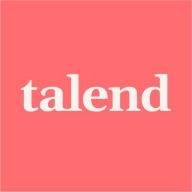

Talend Data Management Platform and Informatica Intelligent Data Management Cloud (IDMC) are key players in the data management sector. Talend seems to have an edge due to its cost-effectiveness and user-friendly interface, which caters well to both new and transitioning users.
Features: Talend provides robust open-source ETL transformations and efficient big data handling, making it ideal for operational and analytical data integration. Its user-friendly interface and powerful scheduling tools make it appealing to a wide range of users. IDMC integrates MDM, data quality, and data integration modules with a flexible architecture supporting multiple domains, which is essential for businesses needing strong governance functions.
Room for Improvement: Talend experiences system crashes during installations and lacks multitasking capabilities, impacting administration and scalability. Better version control and technical support are needed. IDMC's user interface is less intuitive, requiring improvements in data stewardship and GUI. Pricing transparency and integration of offerings are also required for easing user frustrations.
Ease of Deployment and Customer Service: Talend's deployment is straightforward in both cloud and on-premises environments, though technical support could improve. IDMC provides hybrid and private cloud deployments that are scalable, yet feedback indicates technical support can be inconsistent in solving complex issues quickly.
Pricing and ROI: Talend is attractive for budget-conscious clients due to its cost-effective subscription model and reduced operational costs, providing good ROI. In contrast, IDMC is a premium product with higher pricing, which might deter smaller enterprises. Nevertheless, its comprehensive features are perceived as valuable investments by many, resulting in satisfactory ROI despite higher costs.
We see return on investment from this solution in terms of time; time reduction or cost benefits is what we are getting very good results from.
We actually achieved the first 18 months worth of work in the first six months.
For products Master Data Management or related to MDM or Data Governance, there is no way by which we can directly practice, and my team struggles at that point.
The response time is pretty good because we have someone in-house, who is an expert from Informatica, in our team who can help us with any sort of queries usually.
If they are unsure how to resolve an issue, they keep customers informed, providing updates about progress and ensuring communication with the product team to deliver accurate responses.
As a SaaS platform, IDMC is quite scalable and provides complete flexibility.
I find Informatica Intelligent Data Management Cloud (IDMC) to be a sustainable and scalable solution.
Stability is crucial because IDMC holds business-critical data, and it needs to be available all the time for business users.
We have not encountered many issues with remote engines, and the interfaces are properly developed.
One of my clients has a requirement; they want to integrate metadata into the process, which means, for example, if I just want to implement a new field into my database, that field needs to be reflected throughout, let's say, 200 mappings. This highlights the need for a data-driven approach.
The observability concept in Informatica Intelligent Data Management Cloud (IDMC) needs improvement as the capabilities are not up to the mark compared to the industry.
The licenses are too expensive compared to before, which is why customers are now preferring other data metadata management tools like OneTrust, Collibra, and Azure Purview.
On the flip side, that is one of its amazing strengths, as you are not locked into a very rigid way of doing something.
Data management could also encompass APIs and real-time streaming data integration.
IDMC is often described as the 'Ferrari of Master Data Solutions,' implying that while expensive, it is business-critical and, therefore, justified.
The licenses are too expensive compared to before, which is why customers are now preferring other data metadata management tools like OneTrust, Collibra, and Azure Purview.
I think the costs are reasonable for the kinds of features that Informatica Intelligent Data Management Cloud (IDMC) has.
Informatica Intelligent Data Management Cloud (IDMC) can connect to pretty much any application, including Oracle Analytics and Power BI, and it works quite seamlessly.
The platform's ability to pull in data from other platforms without the need for an additional integration tool enhances its appeal.
In on-premise, we call it EDC for metadata management, while in cloud-based technologies, it is known as the Metadata Command Center, which serves the same purpose as EDC concerning CDGC.
Having access to Talend support directly from TNC proved quite beneficial.
| Product | Market Share (%) |
|---|---|
| Informatica Intelligent Data Management Cloud (IDMC) | 3.6% |
| Talend Data Management Platform | 1.1% |
| Other | 95.3% |


| Company Size | Count |
|---|---|
| Small Business | 42 |
| Midsize Enterprise | 24 |
| Large Enterprise | 134 |
| Company Size | Count |
|---|---|
| Small Business | 9 |
| Midsize Enterprise | 5 |
| Large Enterprise | 8 |
Informatica Intelligent Data Management Cloud (IDMC) integrates data quality, governance, and integration with flexible architecture. It supports multiple domains and a data models repository, delivering AI-enhanced data management across cloud-native platforms.
IDMC provides seamless integration and governance capabilities that support diverse data environments. Its comprehensive suite includes customizable workflows, data profiling, and metadata management. AI features, a data marketplace, and performance scalability enhance data management. While its interface poses challenges, its robust matching and cloud-native integration facilities are essential for complex data ecosystems. Users employ IDMC for connecting systems, ensuring data quality, and supporting data compliance but seek better pre-built rules, services, and improved connectivity, especially with platforms like Salesforce. Licensing, cost, and added AI functionalities are areas for potential refinement.
What are the key features of IDMC?IDMC is implemented across industries for data integration, metadata management, and governance. Organizations use it to connect systems, migrate data to cloud environments, and maintain data quality. They manage master data and automate business processes, facilitating data lineage and ensuring compliance with privacy regulations.
We monitor all Data Integration reviews to prevent fraudulent reviews and keep review quality high. We do not post reviews by company employees or direct competitors. We validate each review for authenticity via cross-reference with LinkedIn, and personal follow-up with the reviewer when necessary.